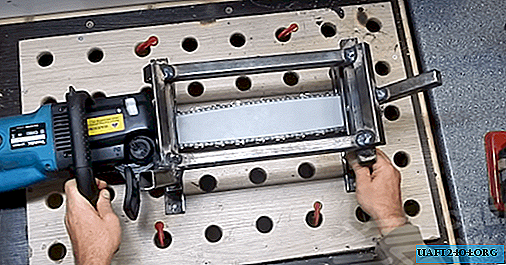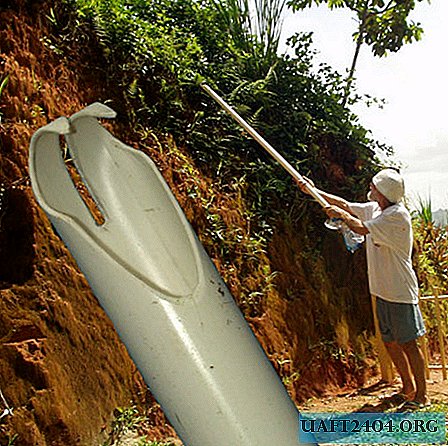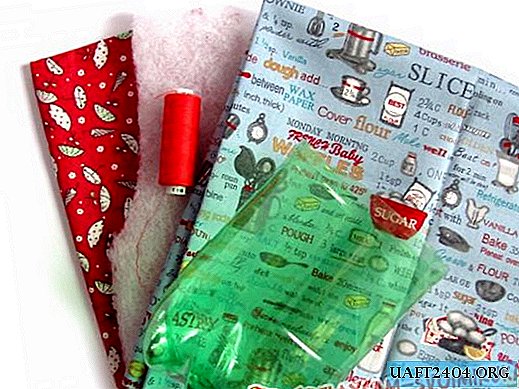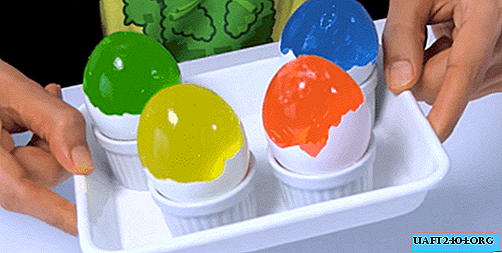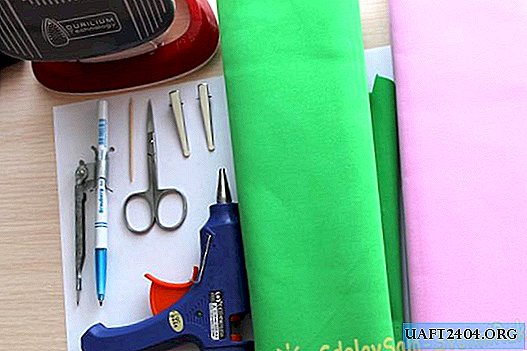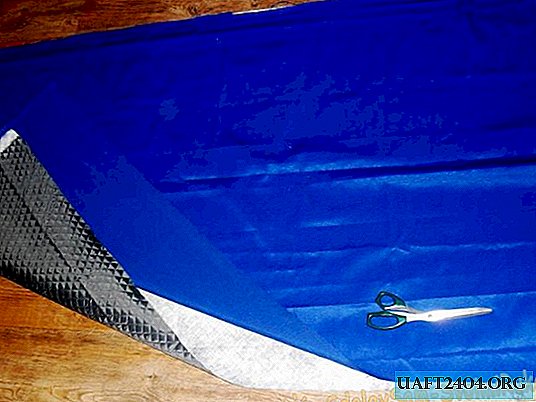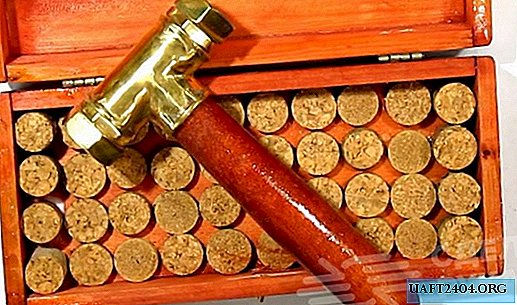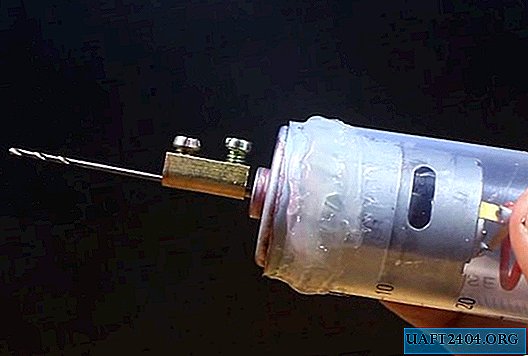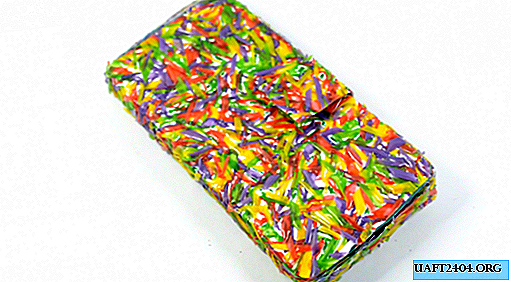Share
Pin
Tweet
Send
Share
Send
Here are some ideas you can take note of.
Idea number 1.
For the manufacture of biochallets you will need:
- White cardboard thick paper
- Compass
- pencil
- Hole puncher
- Black gel pen (thin marker)
- Thick sewing needle
- Linen twine
- Lighter
- Red satin ribbon
- Paints.
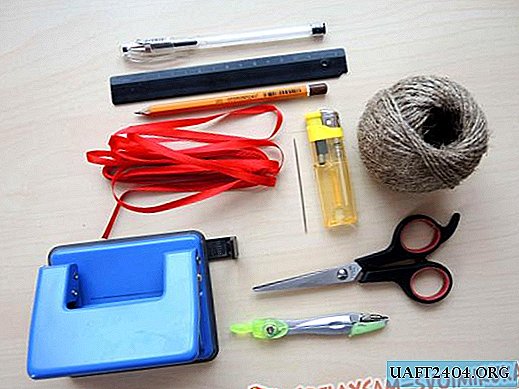
First of all, we’ll prepare the templates.
Measure with a compass 3-4 cm and draw the desired number of circles, then cut them out.



Next, draw the faces of the deer. So far, we’ll put two points instead of the nose.

We make a hole under the cord with a puncher, and pierce two holes with a thick needle, which is in place of the nose. Now the nose of a deer is similar to the nose of a pig, but soon we will fix it.

We cut the ribbon into segments about 20-25 cm long and tie a regular knot twice, but just don’t tighten it much, because the nodules will look much larger - and this is what we need. We burn the ends so that the ribbon does not open.

Let's get back to the tags. Paint the circles, draw the horns. We circle pencil lines with a gel pen, write a congratulation (or the name of the person to whom the gift will be intended).

Now turn the piglet into the nose of a deer. We pass the ribbon through the holes punctured with a needle and tie a bow on the back.


We twine the twine, draw a blush with a finger and paint, and you're done!

Idea number 2.
You will need:
- Cardboard blanks (12x6 cm rectangles)
- Gouache
- wide brush
- Satin ribbons
- sponge
- Stationery knife
- Hole puncher.

We fold the cardboard rectangles in half and on the front side of each draw a silhouette of a snowflake by hand or pre-print the template on the printer.

With a clerical knife, we cut out the silhouettes.

Inside one of the mini-cards, with a wide brush, paint over the background with paint, contrasting white paper.

Take a different color and do the same with the next card.

Let's arrange another one a little differently. Cut a small piece from the sponge. Dip it in paint and fill the front side of the card with color.

When one of the first two postcards dries, using a sponge, apply another layer of white paint.

Cut the ribbons, singe the ends and tie the knots.

We pass the tapes into the holes and the postcard labels are ready!


Idea number 3.
To make these shortcuts you will need:
- Threads of two (or more) colors
- Hook number 2
- Rectangular blanks from white and color cardboard (approximately 9x5 cm)
- Ribbons
- Hole puncher.

First of all, we will connect the snowflakes. If you are an experienced knitter, you will successfully find many wonderful knitting patterns, and if you are a beginner in this field, then the analysis of the proposed pattern follows. It is very simple, but the product connected by it is nevertheless very attractive.

First of all, we collect a chain of six air loops.

We close it in the ring with a connecting column. To do this, enter the hook in the first loop of the chain and hook the working thread and just pull through the two loops that are on the hook.


Next, we collect three lifting air loops - they are replaced with a single crochet, allowing you to start a new row of knitting.

Now the double crochet: we put the hook into the ring, we put a thread on it and stretch it out, now three loops have formed on the hook.


Next, we hook the working thread and stretch through the two nearest loops, now there are two loops left on the hook, again we hook the thread and knit two loops into one.
We collect two air loops.


Further on the scheme - pico. We collect three more air loops and thread the hook into the third loop from the end, grab the working thread and pull it out. There are now two loops on the hook, we put on a thread and knit them together.



Next is again the double crochet.

Two air loops and four pico.

When the fourth pico is connected, we introduce the hook into the base of the third pico from the hook and simply stretch the working thread through the loops that are on the hook - this is the connecting column.


Then there are two air loops and a double crochet in a ring.

Next, just repeat the above steps five more times. When you tie all six of the snowflake’s “petals”, simply insert the hook into the top of the very first crochet you have connected and tie the connecting post.

The finished snowflake needs to be ironed.

The snowflakes in the photo, knitted with blue threads, are made using the same knitting techniques as described above, but in a different pattern. If you wish, you can independently master new schemes.

We make holes in the cardboard blanks with a hole punch.

And we tie snowflakes with ribbons.

It remains only to write wishes.

Idea number 4 - A great opportunity to use the accumulated remnants of colored paper to good use. In addition to the remnants of paper, we will also need ribbons and threads, and, of course, cardboard blanks.

For each label, we compose our own set: a rectangle of patterned paper, two smaller rectangles of plain paper, two pieces of thread and a ribbon.

We collapse each rectangle as in the photo, without ironing the fold - let the box seem voluminous and tie a ribbon.

We tie the rectangles smaller with a thread. We glue miniature gifts to the blank and - the job is done!

Thanks for your attention! I wish you success!
Share
Pin
Tweet
Send
Share
Send

